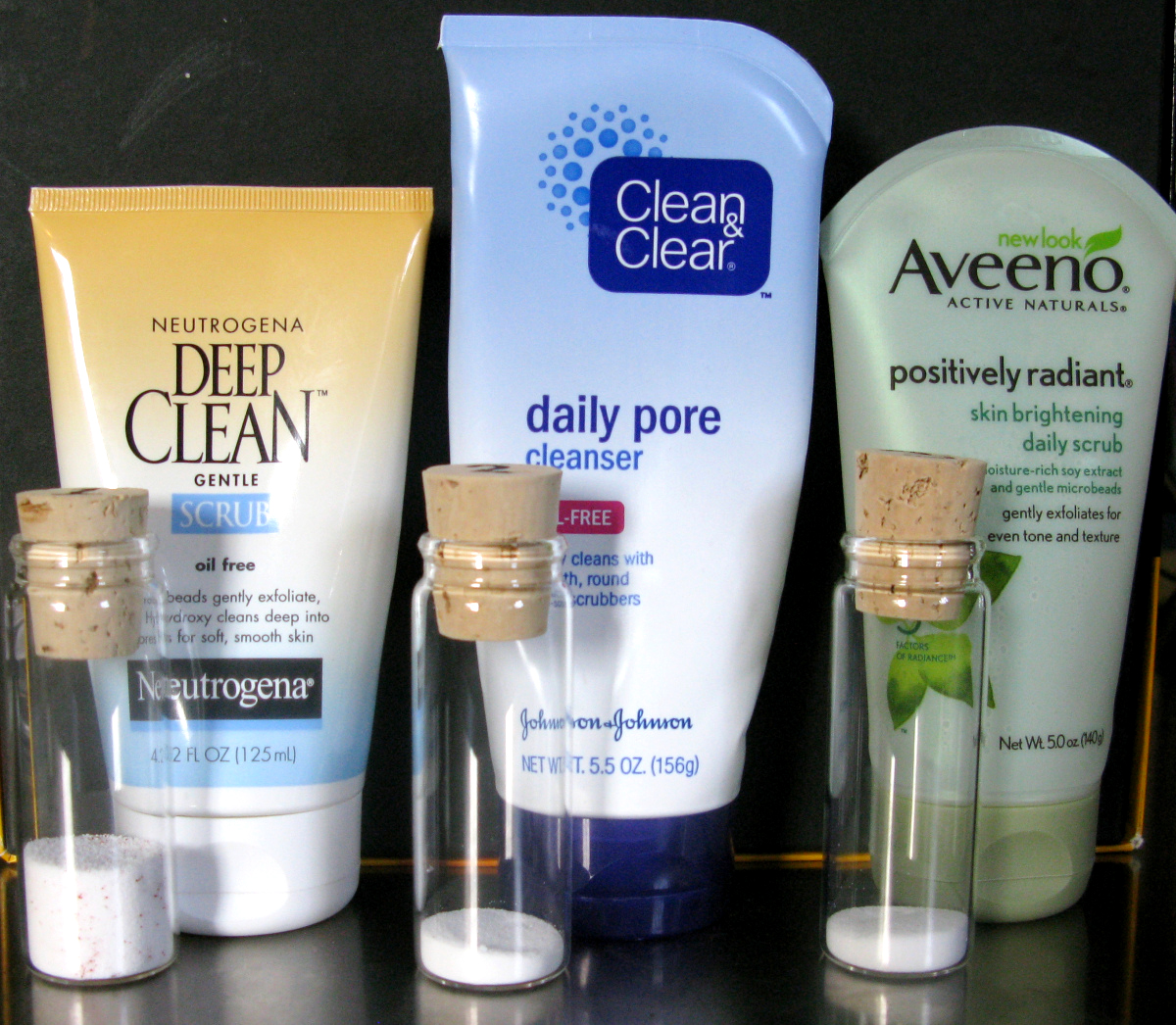
If you’ve ever cleansed your face with a product that promised to gently exfoliate your T-zone, you may have been enjoying the effects of the latest scourge of environmentalists: microbeads.
Microbeads are tiny, round bits of plastic that are found in, among other things, personal care products made by companies like Johnson & Johnson and Proctor & Gamble. They’re so small that one will just cover Abraham Lincoln’s eye on a penny. More important, researchers have found that they’re too small to be sifted out at water treatments plants, so the tiny beads are flowing down bathroom sinks and ending up in America’s lakes and oceans. Though the effects of their presence are still being investigated, five states—California, New York, Illinois, Ohio and Minnesota—are considering bills that would proactively ban their use.
“The fundamental question is going to be: do we wait to take this material out until we prove that this microbead causes harm?” says Chelsea Rochman, a marine ecologist at the University of California, Davis, who specializes in microplastics research.
According to industry experts, microbeads started becoming popular with big companies about a decade ago as replacements for harsher scrubbing ingredients like pumice. Given how relatively new they are, there is little research specifically investigating how microbeads affect the environment. Still, Rochman says, there is plenty of evidence from research on other plastics suggesting that they’re probably causing more harm than good. In oceans and lakes, she says, bits of plastic “act like sponges,” soaking up toxins like pesticides and flame retardants that have also found their way into the ecosystem. And hundreds of species, from fish to plankton to wild-caught tuna, ingest bits of plastic, meaning those toxins could be ending up in the food chain.
Jay Ansell, a toxicologist with the trade association that represents personal care product companies, emphasizes that beyond the lack of research, there also isn’t hard proof that the beads researchers have found came from facial scrubs rather than paint or sand-blasting. Still, that hasn’t stopped many of the big companies represented by the Personal Care Products Council from taking steps away from the beads. Johnson & Johnson, which produces product lines like Clean & Clear and Neutrogena, has already announced that they’re not using microbeads in any new products and are reformulating all those that currently use them, with plans to eliminate their use entirely by 2017. Proctor & Gamble, maker of brands such as Olay, has made similar public vows.
“As an industry there was a feeling that this is certainly something we can do and we can do it today,” Ansell says of eliminating microbeads. “This is something we can live without.”
So why all the legislation, if companies aren’t pushing back? “This is a game of Whack-a-Mole,” says Stiv Wilson, policy director at 5 Gyres, an organization that studies plastic in the world’s watersheds. His group drafted the legislation that has served as a model in all the states that are currently considering bans. He says that laws are needed to keep big companies, however good-willed, beholden to certain timelines and to make sure smaller companies that might use microbeads don’t slip through the cracks. He believes that advocates only need two bills to become laws in U.S. states before it creates a “distribution nightmare” that will force companies’ hands.
Both Illinois and New York look poised to pass their bills. The Illinois measure has passed the Senate and moved on to the state House. In New York, companion bills have been introduced in both chambers, and the attorney general’s office is pushing their passage. Wilson says he’s confident that California could pass their bill too, though he’s less confident about the political circumstances in Minnesota and Ohio.
“It’s really important that these bills become law,” Wilson says. “There’s a history of companies saying they’re going to do something and then putting it off until forgotten … You’ve got to get some teeth behind these promises.” Though companies have not yet said what materials they might use as replacements, advocates have suggested natural products such as crushed walnuts and apricot shells.
An advocacy group operating under the banner “Beat the Micro Bead” is pushing similar reform in Europe. If you’re curious about whether a certain cosmetic contains microbeads, you can view their product lists here. In addition to face wash, Rochman says microbeads are also used in goods like toothpaste, toilet bowl cleaners and other cleaning products.
“This is a solvable problem,” says Wilson. “There’s plenty of places in the market that have demonstrated that you can get the same effect with other materials.” Whatever substitutes the companies end up using, expect more of them to be biodegradable.
More Must-Reads From TIME
- The 100 Most Influential People of 2024
- Coco Gauff Is Playing for Herself Now
- Scenes From Pro-Palestinian Encampments Across U.S. Universities
- 6 Compliments That Land Every Time
- If You're Dating Right Now , You're Brave: Column
- The AI That Could Heal a Divided Internet
- Fallout Is a Brilliant Model for the Future of Video Game Adaptations
- Want Weekly Recs on What to Watch, Read, and More? Sign Up for Worth Your Time
Contact us at letters@time.com